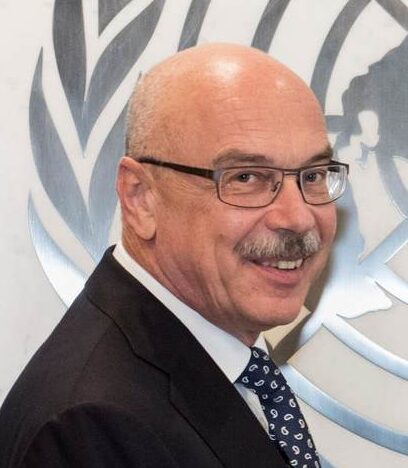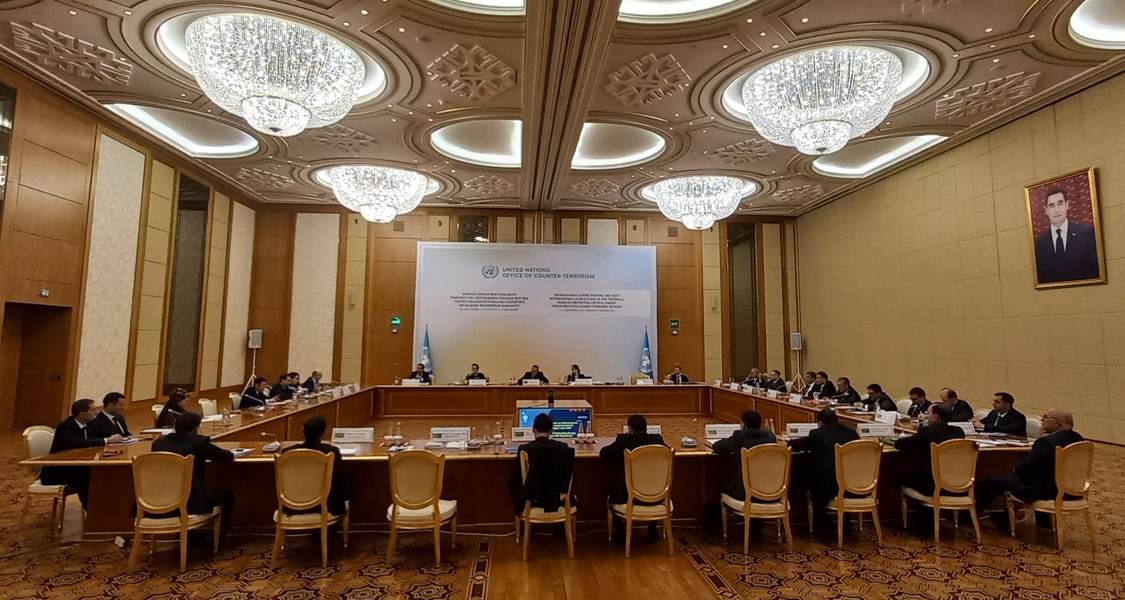Russia continues its war of terror on Ukrainian civilian energy infrastructure: the most recent massive missile and drone attack of 17 November targeted essential electricity transmissions and generation facilities, including thermal and hydropower stations.
In parallel, an event that went relatively unnoticed occurred in the capital of Turkmenistan on 11-12 November - the International Expert Meeting on Protecting Critical Energy Infrastructure from Terrorist Attacks.
It may seem that this discussion in Ashgabat, held under the auspices of the United Nations Office of Counter-Terrorism, is purely technical in nature and should not attract much attention from the wider public. However, the meeting itself is less important than its organizer -- the Russian government.

Moreover, this event is being held under the auspices of a United Nations body, whose task is to "support Member States in taking practical steps to prevent and combat terrorism."
On the other hand, unfortunately, this state of affairs is also quite expected, as the United Nations Office for Counter-Terrorism is headed by Russian diplomat Vladimir Voronkov, who also serves as the UN Under-Secretary-General.
To make the situation more absurd, back in September 2024, the UN Human Rights Monitoring Mission in Ukraine released the report "Attacks on Ukraine's Energy Infrastructure: Harm to Civilians."
Among the conclusions of the document was the following thesis:
"Some of the attacks [by Russia on Ukraine's energy infrastructure] may have been intended to intimidate and spread panic among civilians by depriving them of essential services. Such attacks with the primary purpose of terrorizing the population are prohibited under international law, and attacks on dual-use facilities should be directed at their military use, not at weakening morale or spreading terror among the civilian population."
In other words, while recognizing (albeit at the level of analytical documents) the terrorist nature of Russian attacks on the Ukrainian energy sector, the UN simultaneously allows Russia to hold events where methods of combating similar attacks are discussed.
The Embassy of Ukraine in Turkmenistan has already reacted, calling Russia's participation as a co-organizer "politically and morally unacceptable" and calling on the international community to make joint efforts "to encourage Russia to stop destroying Ukraine's energy infrastructure."
If the United Nations is really interested in obtaining the best practices in protecting critical energy infrastructure, Ukraine is the best choice in this regard.
In May-August 2024 alone, Ukraine lost 9.2 GW of generation capacity due to attacks, which is comparable to the total installed capacity of New Zealand. And despite the unprecedented scale of the attacks, our system continues to operate and supply electricity to consumers.
In general, similar events held by Russia under the auspices of international organizations are quite symptomatic, as they demonstrate the sad reality that the suffering of millions of Ukrainians still cannot change: the aggressor still has the ability to use universally recognized international platforms to promote its own narratives and propaganda.
And Russia will continue to do so to influence the positions of other states on the war it is waging against Ukraine, unless stopped by joint efforts of the international community.
Editor's note. The opinions expressed in our Opinion section belong to their authors. Euromaidan Press' editorial team may or may not share them.
Submit an opinion to Euromaidan Press
Related:

